Loan Business

How long does it take to get approved for a mortgage ?
Getting approved for a mortgage is an essential step in the home buying process. The time it takes to get approved can vary depending on several factors, including your financial situation, the type of loan you are applying for, and the lender you choose. In this article, we will discuss the different stages of the mortgage approval process and provide an estimate of how long each stage typically takes. ## Stage 1: Pre-approval Pre-approval is the initial step in the mortgage approval process. During this stage, you will need to submit various documents to your lender, such as pay stubs, tax returns, and bank statements. Your lender will then review your financial information to determine if you qualify for a mortgage and what size loan you can afford. This stage typically takes around 1-3 business days. ### Documents needed for pre-approval: - Pay stubs from the past two months - W2 forms or tax returns from the past two years - Bank statements from the past two months - Credit report ## Stage 2: Underwriting Once you have been pre-approved, your lender will begin the underwriting process. During this stage, your lender will verify the information you provided during pre-approval and ensure that you meet all of their lending requirements. This stage typically takes around 5-7 business days. ### Tasks performed during underwriting: - Verifying employment and income - Checking credit history and scores - Evaluating assets and liabilities - Assessing property value and condition ## Stage 3: Closing If your lender approves your loan application, you will move on to the closing stage. During this stage, you will sign all of the necessary paperwork to finalize your loan. This stage typically takes around 3-5 business days. ### Tasks performed during closing: - Reviewing final loan documents - Signing loan agreements and disclosures - Paying closing costs and fees - Receiving keys to your new home ## Estimated Timeline for Mortgage Approval In summary, the estimated timeline for getting approved for a mortgage is as follows: 1. Pre-approval: 1-3 business days 2. Underwriting: 5-7 business days 3. Closing: 3-5 business days Overall, it typically takes around 9-15 business days to get approved for a mortgage. However, keep in mind that this timeline can vary depending on factors such as your financial situation, the lender you choose, and any potential delays or issues that may arise during the process.

How do I qualify for a mortgage loan ?
This article provides a detailed guide on how to qualify for a mortgage loan, highlighting key factors that lenders consider such as income, credit score, debt-to-income ratio, employment history, and assets and liabilities. It also outlines steps to take in order to increase chances of success including checking your credit score, calculating your DTI, gathering financial documents, shopping around for lenders, getting pre-approved for a loan, finding a home within budget range, making an offer, and completing the closing process.
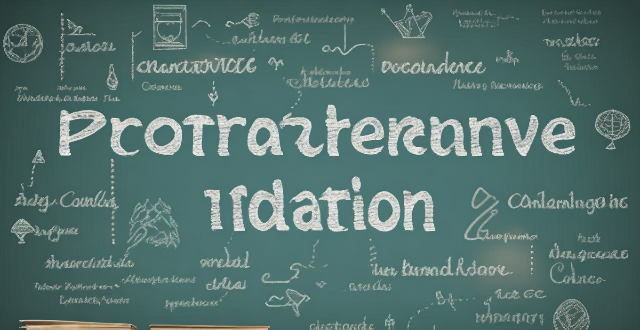
How do I apply for a student loan ?
This text provides a comprehensive guide on how to apply for a student loan. It outlines nine steps, including determining needs, researching loan options, checking eligibility requirements, gathering documents, completing and submitting the application form, waiting for approval, signing promissory notes and loan agreements, and receiving disbursement of loan funds. The guide emphasizes the importance of understanding different loan options and their terms and conditions before applying. It also highlights the need to gather all necessary documents and provide accurate information in the application form. Overall, this text is an essential resource for students seeking financial assistance for their education.

What factors determine the amount of a student loan ?
The amount of a student loan is determined by several key factors, including eligibility criteria set by the lender, the cost of attendance at the chosen school, the student's financial need, and the type of loan (federal or private). Other influential factors include repayment options, school choice, and the availability of other financial aid. Students should consider all these elements and explore all possible funding options before taking out a loan.

How does defaulting on a student loan affect future borrowing ?
Defaulting on a student loan can severely impact your financial future, including your ability to borrow money. Here's what happens when you default and how it affects future borrowing: 1. **Consequences of Defaulting**: When you fail to make payments on your student loan for an extended period (typically 270 days), it's declared in default. The loan servicer then takes measures like wage garnishment, tax refund offset, and charging collection fees. Your credit score also takes a significant hit. 2. **Impact on Future Borrowing**: - **Difficulty Obtaining New Loans**: Lenders see you as a high-risk borrower, making it hard to get mortgages, car loans, or personal loans. - **Higher Interest Rates**: Even if approved, you face higher interest rates due to your damaged credit score. - **Limited Borrowing Options**: You may only qualify for secured or co-signed loans. - **Trouble Renting Property**: Some landlords check credit scores, and a defaulted loan can hinder your rental applications. - **Impact on Employment Opportunities**: While less common, some employers might check your credit report, affecting job prospects in industries where financial responsibility is crucial. 3. **Recovering from Default**: - **Rehabilitation Programs**: Many lenders offer these to help you make affordable payments over time, removing the default status. - **Consolidation Loans**: You can consolidate your defaulted loan into a new Direct Consolidation Loan through the federal government, making it easier to manage your debt. However, this doesn't remove the default status from your credit report. - **Paying Off the Debt**: If possible, paying off the loan in full removes the default status and improves your borrowing prospects. Negotiating a settlement with your lender or seeking assistance from a nonprofit credit counseling agency are other options.

How can I manage my student loan repayment after graduation ?
## Summary of Managing Student Loan Repayment After Graduation After graduation, managing student loan repayment can be a significant challenge. However, by following these steps, you can effectively manage your loans and avoid unnecessary fees or damage to your credit score: 1. **Understand Your Loan Terms**: Before starting any repayment plan, it's crucial to understand the terms of your student loans, including interest rates, monthly payments, and grace periods. 2. **Create a Budget**: A budget helps prioritize expenses and determine how much money can be allocated towards student loan repayment each month. Include all necessary expenses in your budget. 3. **Make Payments On Time**: Late payments can lead to fees and negatively impact your credit score. Set up automatic payments or make manual payments on time to avoid penalties. 4. **Consider Consolidation or Refinancing**: If you have multiple loans with different terms, consolidating them into one payment or refinancing at a lower rate may simplify repayment and save money. 5. **Explore Repayment Options**: Federal student loans offer various repayment plans, such as income-driven plans that adjust your payments based on your income and family size. Discuss the best plan with your loan servicer. 6. **Seek Help if Needed**: If struggling to make payments, don't hesitate to reach out for assistance. Many loan servicers offer forbearance or deferment options, and there are also government programs that can provide support for student loan repayment.

Are there any programs that help with student loan forgiveness or relief ?
There are several programs available to help with student loan forgiveness or relief, including Public Service Loan Forgiveness (PSLF), Income-Driven Repayment Plans (IDRs), Teacher Loan Forgiveness Program, Disability Discharge, Closed School Discharge, and Borrower Defense to Repayment. These programs vary by country and eligibility requirements, but they all aim to make student loan payments more affordable or forgivable based on certain criteria such as employment in public service, income level, teaching at a low-income school, disability status, school closure, or being misled or defrauded by a college or university. It's important to research each option thoroughly and determine which one best fits your individual circumstances and needs.

What should I consider when choosing a private vs federal student loan ?
When choosing between a private and federal student loan, consider interest rates, repayment options, forgiveness programs, eligibility requirements, and the application process. Federal loans usually have lower interest rates and more lenient eligibility requirements, while private loans may offer more flexibility in repayment options but typically have higher interest rates. Weigh these factors against your individual circumstances and financial goals to make an informed decision about which type of loan is best for you.

What are the pros and cons of taking out a student loan ?
Student loans can help students afford college, but also come with long-term debt and limited job opportunities.

What is credit management ?
Credit management is the process of managing and controlling the use of credit by individuals or businesses. It involves evaluating borrowers' creditworthiness, determining the amount of credit to extend, monitoring loan repayment, and taking action for late payments. Key components include credit analysis, evaluation, loan monitoring, collections management, risk management, and customer relationship management. Effective credit management benefits include reduced default risk, improved cash flow, increased customer satisfaction, and enhanced reputation.

What are the key elements of female business attire and etiquette ?
This article outlines the key elements of female business attire and etiquette, including appropriate clothing choices such as tailored blazers, collared shirts, closed-toe pumps, and understated jewelry. It also emphasizes the importance of proper etiquette in introductions, meetings, communication, dress code compliance, dining situations, and maintaining confidence and poise. Following these guidelines can help women project a professional image and strengthen their personal brand in the business world.

How often should a business review its credit management policies ?
The frequency of reviewing your credit management policies will depend on various factors specific to your business. However, by conducting regular reviews and staying vigilant about potential issues, you can help ensure that your policies remain effective and aligned with your business goals.

How do changes in economic indicators affect small business operations ?
Economic indicators such as GDP, inflation rates, unemployment, interest rates, and consumer confidence can significantly affect small businesses. These changes impact financing costs, labor availability, consumer demand, and operational expenses. Small business owners should monitor these factors to adjust their strategies effectively.

Can you provide examples of female-driven social enterprises that combine business with philanthropy ?
Female-driven social enterprises are combining business with philanthropy to create positive change in society, empowering marginalized individuals and promoting sustainability. Examples include Samasource, Prodigy Finance, Kiva, S'well, and Girlfriend Collective. These organizations demonstrate the power of women in driving social impact through sustainable business practices.
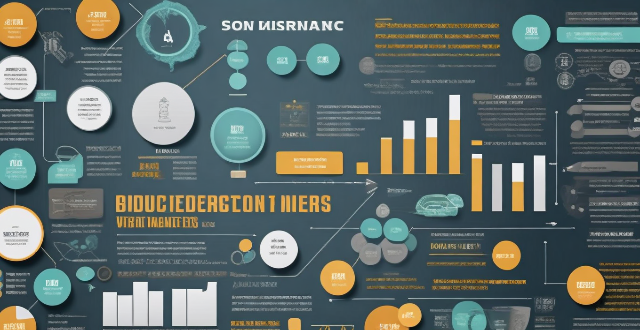
How do investors evaluate the credibility of a celebrity-led business ?
Investors consider various factors when evaluating the credibility of a celebrity-led business, including the reputation and expertise of the celebrity, the quality of the product or service, marketing and branding strategies, and financial performance and projections. By analyzing these factors, investors can make informed decisions about whether to invest in such businesses.

How does a home equity loan work in relation to my mortgage ?
A home equity loan allows homeowners to borrow against the equity in their property, serving as a second mortgage without requiring refinancing. It offers advantages such as lower interest rates and potential tax deductions but also presents risks like foreclosure and additional debt. Understanding how it works in relation to your primary mortgage is crucial for making an informed financial decision.

Can I get a mortgage with bad credit ?
Getting a mortgage with bad credit is possible but may be more challenging and come with less favorable loan terms. To increase your chances, check your credit score, work on improving it, shop around for lenders, consider alternative options like FHA or VA loans, and be prepared to make a larger down payment.

How effective are microfinance programs in improving the economic status of women in developing countries ?
Microfinance programs aim to alleviate poverty, especiallyMicrofinance programs aim to alleviate poverty, especially, by offering small loans and especially among women in developing countries, by offering small loans and savings opportunities. These initiatives can lead to increased entrepreneurship, economic empowerment, and community development. However, their effectiveness varies due to factors like high interest rates and market saturation. To maximize impact, best practices include tailored loan products, capacity building, sustainable development, and partnership with governments and NGOs.

What are the benefits of using blockchain in business ?
The article discusses the various benefits of using blockchain technology in business operations. These benefits include increased transparency and trust, improved security, reduced costs and efficiency, greater control and traceability, enhanced data management, and potential for innovation and new business models. Blockchain's decentralized nature and cryptographic security make it a secure and efficient way to store and manage data, automate processes, and track the movement of goods and services. The technology also offers new possibilities for innovation and disruptive business models.

How can insurers adapt to climate change and its impacts on their business ?
Insurers must adapt proactively to mitigate potential losses and maintain their business sustainability, including understanding climate change risks, innovating products and services, adjusting pricing and underwriting strategies, managing risks effectively, establishing governance and transparency, and fostering collaboration and partnerships.

How do I choose the right type of fire extinguisher for my home or business ?
Choosing the right type of fire extinguisher for your home or business requires careful consideration of various factors such as classification, size, ease of use, maintenance, cost, and brand reputation. By taking these factors into account, you can select a fire extinguisher that meets your specific needs and helps keep you and your property safe from fire hazards.
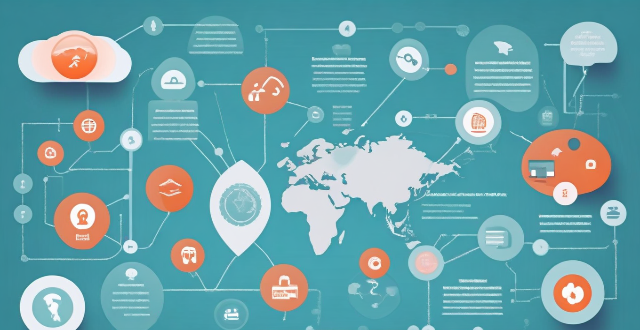
Can mind mapping be effectively used in business settings ?
Mind mapping is a visual tool that can be effectively used in business settings to enhance productivity, creativity, and communication. It helps individuals and teams organize information, generate ideas, and solve problems by creating a structured diagram of related concepts. The benefits of mind mapping in business include improved organization, enhanced creativity, increased productivity, and better communication. To implement mind mapping in business, one should choose the right tool, train their team, integrate it into processes, encourage collaboration, and continuously evaluate its effectiveness.
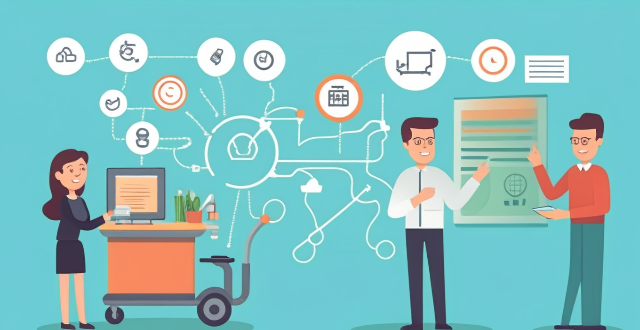
Can you consolidate multiple student loans into one payment ?
Consolidating multiple student loans into one payment simplifies monthly expenses and can reduce overall interest rates. The process involves taking out a new loan to pay off existing ones, resulting in a single fixed interest rate and monthly payment. Benefits include lower monthly payments and easier management, but potential drawbacks such as longer repayment periods and loss of lender benefits should be considered. Successful consolidation requires evaluating current loans, comparing offers, and understanding all terms before committing.

Where can I find comprehensive online learning resources for business management ?
The article discusses various online learning platforms that offer comprehensive resources for business management. These include Coursera, Udemy, edX, Khan Academy, and LinkedIn Learning. The courses provided by these platforms cover a wide range of topics, such as strategy formulation, financial management, human resource management, and marketing. Some of the popular courses mentioned are Introduction to Marketing by Northwestern University on Coursera, Business Finance for Non-Finance Managers on Udemy, and Strategy and Innovation in the New Economy by Stanford University on edX. The article emphasizes that these platforms offer courses suitable for learners of all levels and can help individuals acquire the necessary knowledge and skills to become successful business managers.
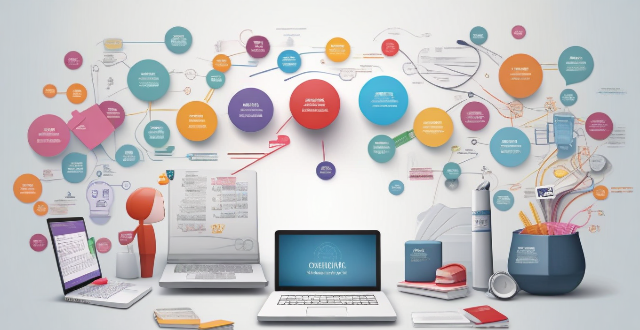
What role does a celebrity's reputation play in the success of their business ventures ?
The reputation of a celebrity can significantly impact the success of their business ventures. A positive reputation can establish trust and credibility with consumers, align with brand image, provide effective marketing opportunities, and foster customer loyalty. Managing perception is crucial in maintaining a positive reputation and avoiding negative publicity that could harm the business's reputation. Overall, a celebrity's reputation is a valuable asset that can contribute to the success and longevity of their business endeavors.

How do celebrity entrepreneurs balance their public image with their business responsibilities ?
Balancing public image with business responsibilities is crucial for celebrity entrepreneurs to maintain their personal brand and ensure the success of their ventures. Key strategies include consistent messaging, active social media presence, mindful public appearances, delegation, setting clear goals, continuous learning, aligning marketing strategies, collaborations, and transparency. By integrating these approaches, they can effectively navigate their dual roles, leveraging fame to drive business success while staying true to their personal brand.

What is private mortgage insurance (PMI) and do I need it ?
Private Mortgage Insurance (PMI) is a type of insurance that protects the lender, not the borrower, in case of default on a mortgage loan. It is typically required when a homebuyer makes a down payment of less than 20% of the home's purchase price. Whether you need PMI depends on factors such as your down payment, credit score, loan-to-value ratio, and type of loan. Consider the cost of PMI and alternatives before deciding to obtain it.

How does a co-signer affect my mortgage application ?
A co-signer is a person who signs a loan application along with the primary borrower. The co-signer agrees to take on the responsibility of repaying the loan if the primary borrower fails to do so. In this article, we will discuss how a co-signer affects your mortgage application. The credit score of both the primary borrower and the co-signer plays a significant role in determining the eligibility for a mortgage loan. A co-signer with a good credit score can improve the chances of getting approved for a mortgage loan. However, if the co-signer has a poor credit score, it may negatively impact the loan approval process. The income and debt-to-income ratio (DTI) of both the primary borrower and the co-signer are also important factors that lenders consider when evaluating a mortgage application. If the co-signer has a high income and low DTI, it can help strengthen the application and increase the chances of approval. On the other hand, if the co-signer has a low income or high DTI, it may negatively impact the loan approval process. Lenders also consider the employment history of both the primary borrower and the co-signer when evaluating a mortgage application. A stable employment history can demonstrate financial stability and reliability, which can positively impact the loan approval process. If the co-signer has a stable employment history, it can help strengthen the application and increase the chances of approval. The assets and liabilities of both the primary borrower and the co-signer are also taken into consideration by lenders when evaluating a mortgage application. If the co-signer has significant assets and few liabilities, it can help strengthen the application and increase the chances of approval. However, if the co-signer has significant liabilities or limited assets, it may negatively impact the loan approval process. In conclusion, a co-signer can have a significant impact on your mortgage application. Their credit score, income and DTI, employment history, assets, and liabilities are all factors that lenders consider when evaluating a mortgage application. It is important to choose a co-signer who has a good credit score, stable employment history, and low DTI to increase the chances of getting approved for a mortgage loan.

How do interest rates on student loans work ?
Interest rates on student loans are the percentage of the loan amount that borrowers must pay in addition to the principal balance. The interest rate is determined by the lender and can vary based on factors such as creditworthiness, type of loan, and repayment term. There are two main types of student loans: federal and private. Federal student loans have fixed interest rates that are set by Congress each year, while private student loans have variable or fixed interest rates that are determined by the lender. Interest on student loans begins to accrue as soon as the loan is disbursed, and there are several repayment options available for student loans. By choosing the right type of loan and repayment plan, you can minimize your interest costs and pay off your student loans more efficiently.